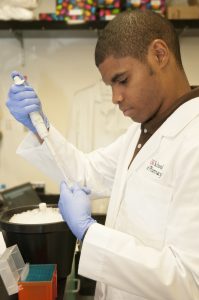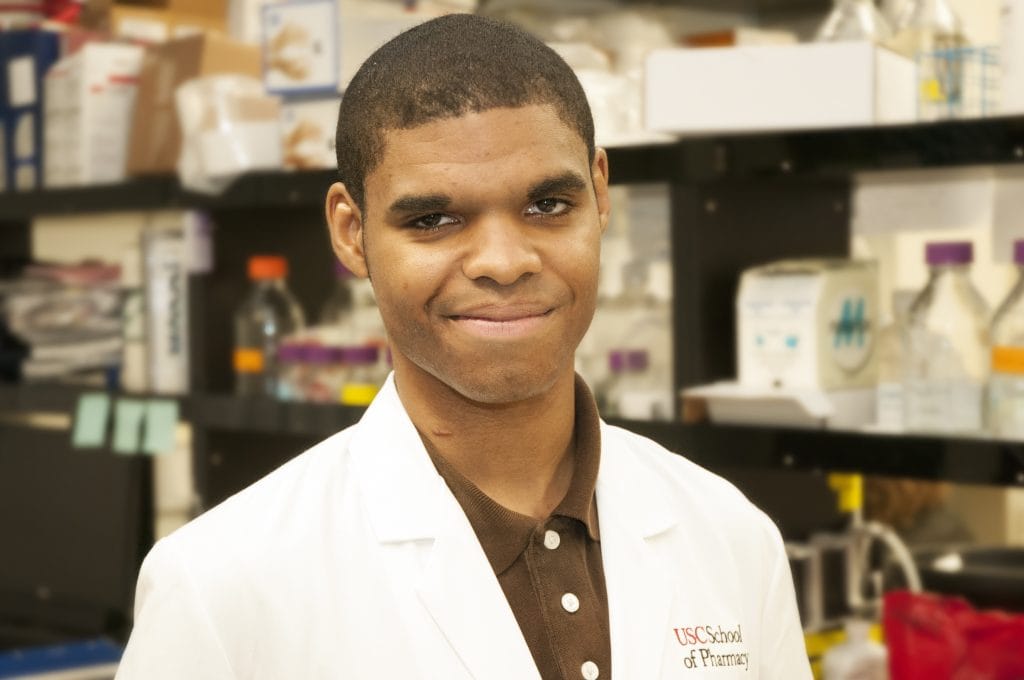Jordan Despanie hopes to one day found a biotech start-up to bring lifesaving therapeutics to the public – and with years of laboratory experience and a new grant under his belt, he’s certainly on the right track to do just that.
“I’ve always been interested in virology, especially gene therapy – using a virus to bring therapeutics into the human body,” says Despanie, who is currently working on a PhD in Pharmaceutical Science in the lab of Assistant Professor Andrew MacKay.
Prior to coming to USC Mann, Despanie earned a Bachelor of Science in Biology at Louisiana State University, allowing him to pursue research topics such as oncolytic virotherapy and RNA interference. He went on to work in a laboratory at Johns Hopkins, where he did research that focused on molecular trafficking in relation to Cystic Fibrosis.
Now, the Louisiana native is researching ways to use biodegradable nanoparticles to deliver protein drugs. His research has earned him a prestigious two-year CTSI training grant for his project, entitled “Enhancing drug synergy using protein polymer nanoparticles against metasastic breast cancer.”
 “I hope to turn the grant findings into my dissertation project,” says Despanie.
“I hope to turn the grant findings into my dissertation project,” says Despanie.
In addition to his work in MacKay’s lab, Despanie is also a writer for the Oxbridge Biotech Roundtable, which aims to bring together students interested in lifesaving developments to expose them to the breadth of careers in the field.
His involvement with OBR led him to participate in the group’s inaugural OneStart Americas competition.
“The event allows people in the sciences who are under 35 to explore entrepreneurism and biotech,” explains Despanie.
Despanie and his team of young people from various disciplines proposed an idea to create a blood substitute. As part of the competition, they had to develop and pitch a business plan, which impressed the judges enough to earn them a spot in the semi-finals, and they ultimately placed in the top 35 out of 135 teams.
“I hope to take all I’ve learned and all my experiences and turn them into a successful start-up that will help create companies that save lives through innovative therapeutics,” says Despanie.


